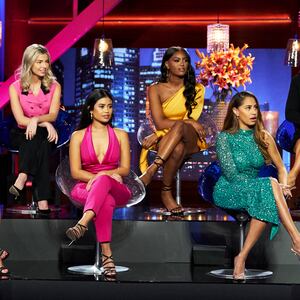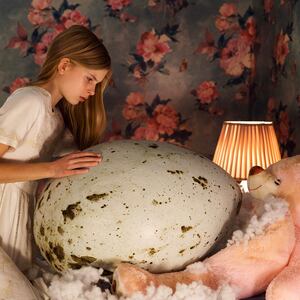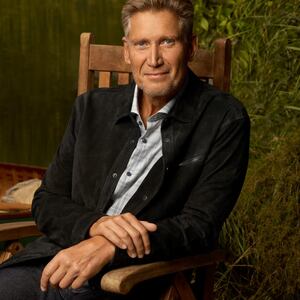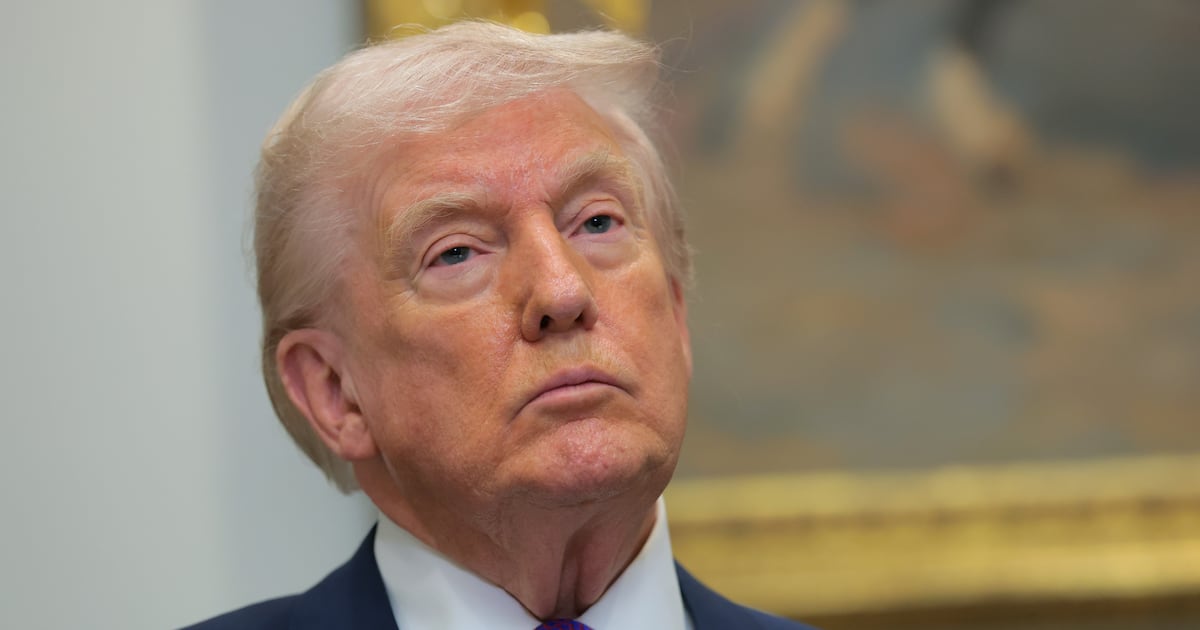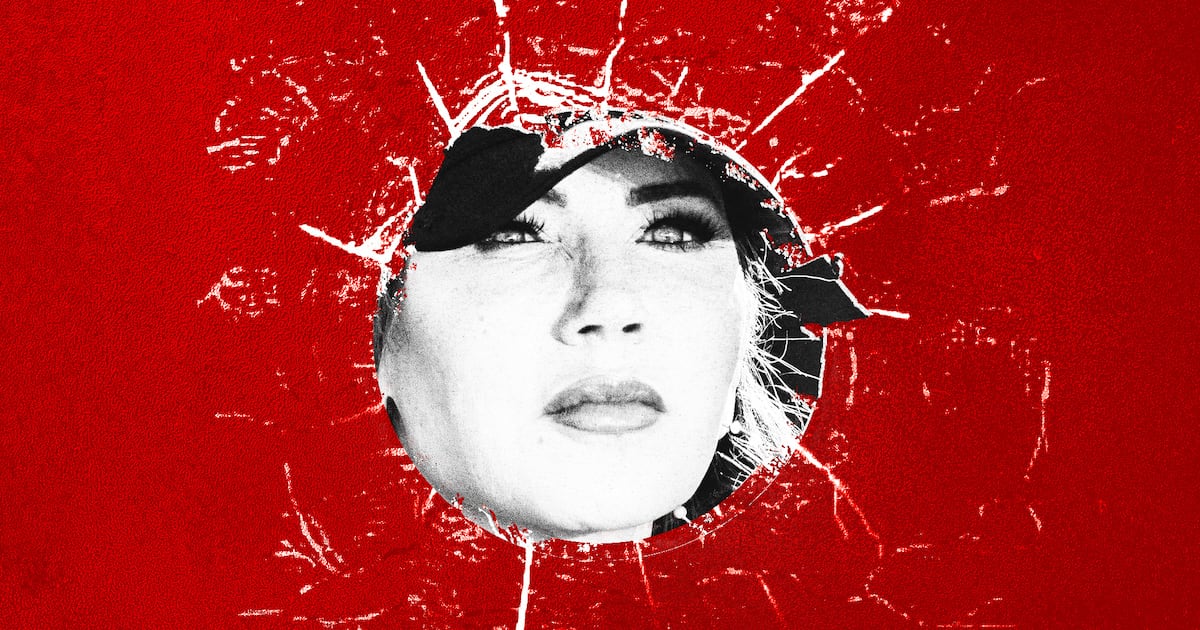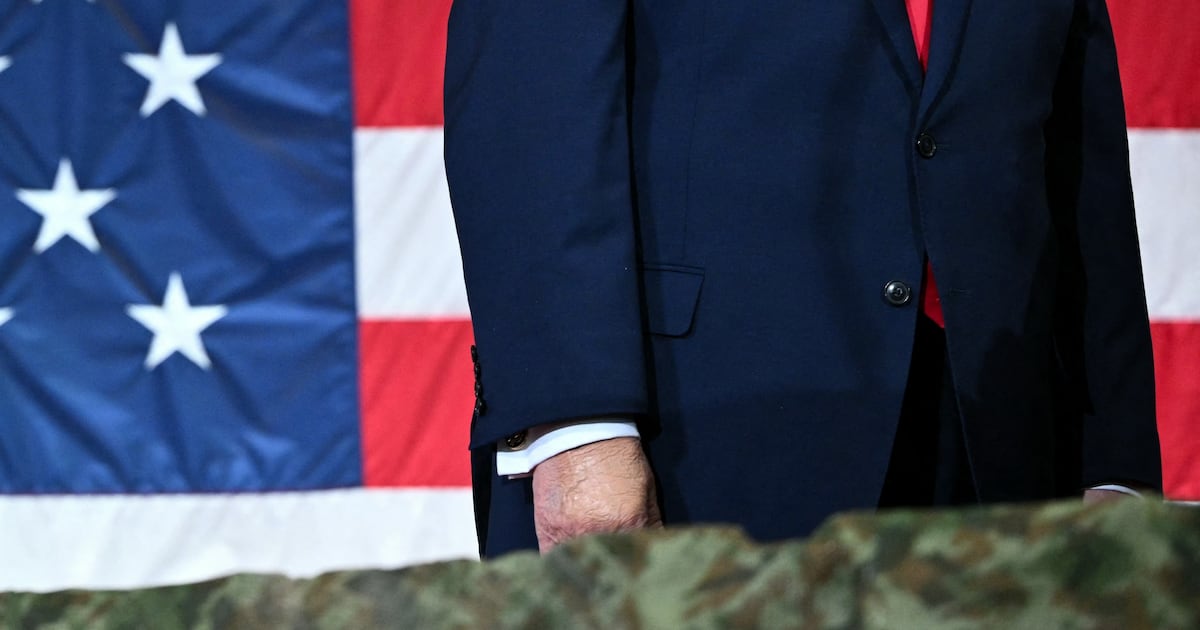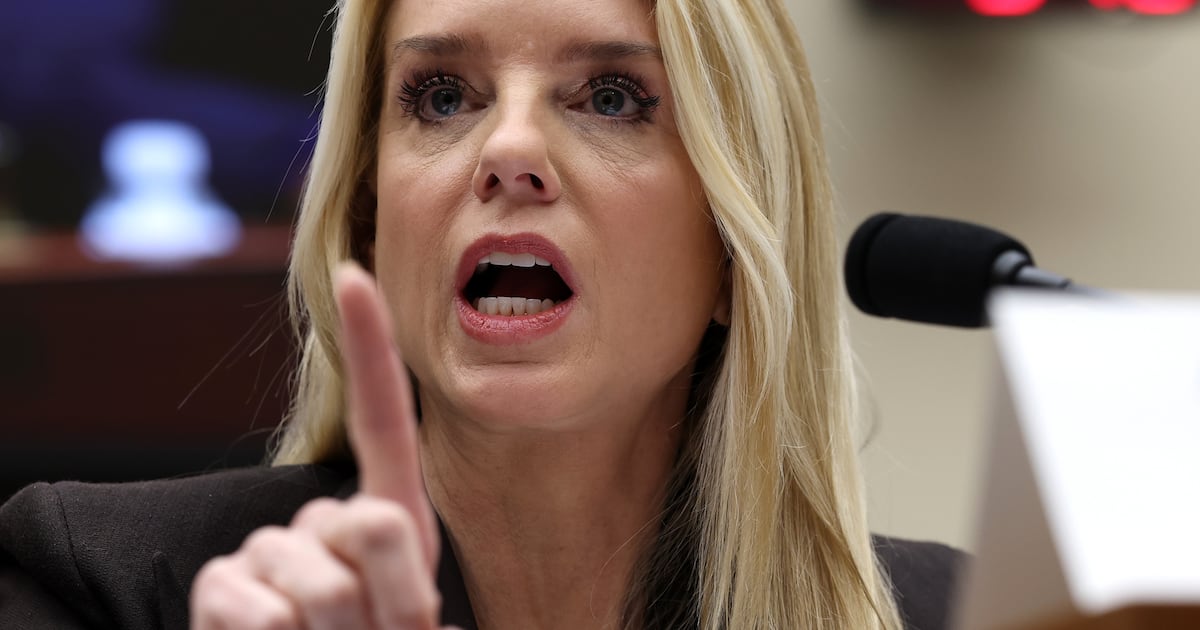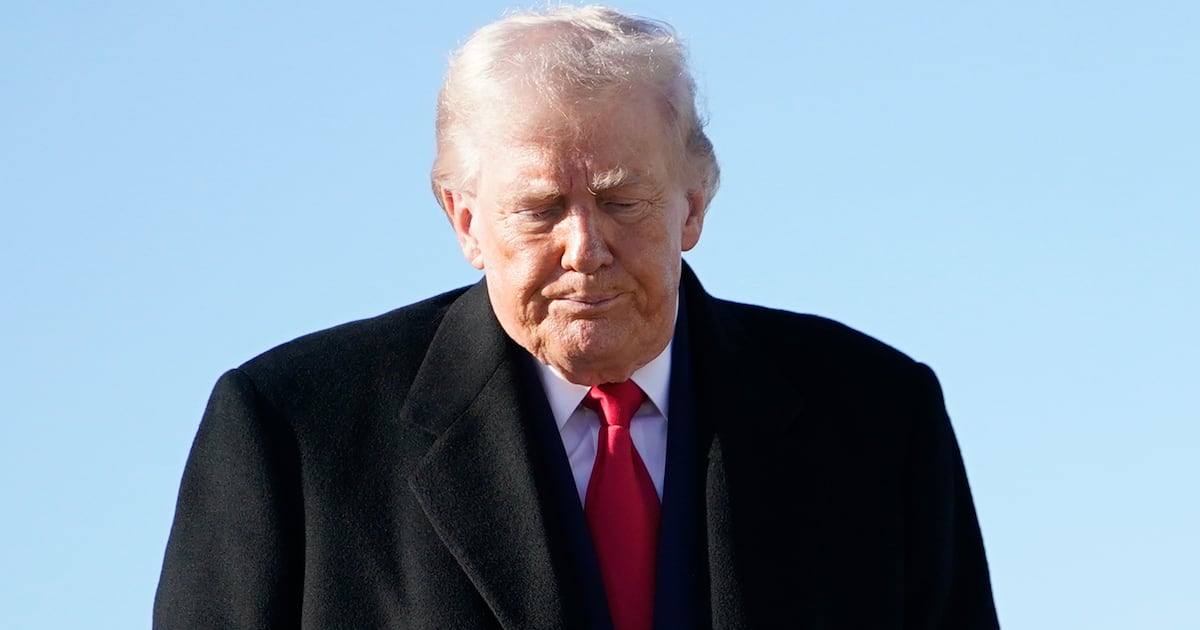On Monday night, The Bachelor staged another group date steeped in vulnerable conversation. As we’ve seen increasingly in recent years on Bachelor/ette, producers once more put some chairs in a circle for some tearful heart-to-hearts between Clayton Echard and his contestants. And while several contestants shared candid accounts of moments they’ve disliked themselves, it was the Bachelor whose disclosure might make the greatest impact.
After multiple contestants shared their experiences with body image issues, the former NFL player shared his own experience with body dysmorphia as a teenager. Considering how little-discussed male eating disorders and body dysmorphia are, this conversation could be seen as a step forward—at least, if it had happened on basically any other show.
It’s hard not to eye-roll a bit when one remembers the setting in which all of this is taking place—a franchise so fatphobic that it’s featured only one plus-sized contestant in 20 years. (And lest we forget, that one contestant, Bo Stanley, went home on Night One during Chris Soules’ season in 2015—an exit deemed so unremarkable that we never saw it on screen.)
Kaitlyn Bristowe, who met Clayton when he competed on Michelle Young’s Bachelorette season, moderated Monday’s discussion. Contestants were asked to stand if there were things about themselves they disliked; everyone rose from their seats and soon enough, they dug into the specifics.
One of the most harrowing disclosures came from Hunter Haag, who recalled a toxic relationship in which she dyed her hair and purchased color contacts to please a controlling boyfriend who also compared her body to those of other women. She recalled going to the gym “to get this body that was impossible for me to achieve.” Another contestant, Serene Russell, opened up about being “anorexic” in her youth, which prompted her to overeat in an attempt to gain weight.
Soon enough, Clayton shared his own experience. “When I was younger,” he said, “I hated who I was just by waking up every day and seeing somebody I wished I didn’t see.”
In seventh grade, Clayton said, he lost 15 pounds at a time when he should have been growing. He was eating less, he said, “because I hated the way my stomach looked... I’d look in the mirror and I’d just pinch my stomach.”
“I’m proud of where I’ve come,” the Bachelor concluded. “I think I turned my biggest weakness into a strength. Now that I love myself and who I am, I can pour that out to everyone else around me.”
Cut to an in-the-moment interview with contestant Susie Evans, who pointed out how rare the moment felt. “I don’t think I’ve ever heard a man talk about that kind of feeling toward themselves,” she said.
Eating disorders and body dysmorphia in men are a rarer topic of conversation than those of women—which might be part of why male body issues are under-diagnosed. In that regard, Clayton’s comments are somewhat groundbreaking for a series that often pretends that men without six-packs simply do not exist on this planet. At the same time, isn’t that... kind of exactly the problem?
In fairness to The Bachelor, nearly all of our dating shows like to pretend fat people are simply not a part of the horny public. But as the grandaddy of much of the reality-dating genre, one wishes it had taken a more active role in shifting that paradigm. (Then again it also took 18 years and 25 seasons to get our first Black Bachelor, sooooo....)
Fatphobia and body-shaming have always been endemic to this show, both on-screen and off. During his season Matt James was forced to apologize after one of his friends body-shamed one of his contestants. Contestant Leo Dottavio—whose troubling background surfaced during his time on Becca Kufrin’s season—once laughed along on a podcast as the host said fat women “should be shot like cattle.” Taylor Nolan got in trouble for a number of horrific old tweets last year, which included several fatphobic posts. Discussions have periodically erupted in the show’s online community to address the fatphobia that pervades those spaces, as well.
But perhaps nothing exemplifies The Bachelor’s attitude toward anyone with more than 8 percent body fat better than comments made by former host and current persona non grata Chris Harrison.
When asked whether the franchise might one day feature “a less hunky bachelor, like maybe a chubby guy,” during a New York Times interview in 2014, Harrison did not mince words: “No.”
“You know why?” he continued. “Because that’s not attractive, and television is a very visual medium, and I know that sounds horrible to say, but I know that at 42, in the eyes of television, I’m old and unattractive. Sure, I can put a suit and tie on, but I have hair on my chest and I don’t have a 12-pack. I live a healthy life, but I don’t do eight hours in the gym, nor do I want to. And I don’t eat 50,000 egg whites.”
The Bachelor producers would likely prefer to no longer be associated with the guy they fired for defending a woman’s right to throw down at an Antebellum South theme party in 2018. But Harrison’s words cut directly to the toxic, completely arbitrary laws of “attraction” by which the show still seems to live and die.
Yes, these beauty and body standards still pervade our society—but fat people are not out here getting laid every day to be lied about like this! While some immature twerps might still ascribe to outmoded ideas about sex and attraction, plenty are also capable of spotting hotness regardless of pant size. To suggest otherwise is ignorant, myopic, and worst of all so dreadfully boring.
It’s nice to see The Bachelor display at least some passing interest in promoting genuinely vulnerable conversations, including those about body image. But if producers want more than a nod and a wry chuckle, they might consider the role they themselves have played in making people feel so shitty about the skin sacks into which they were born.


